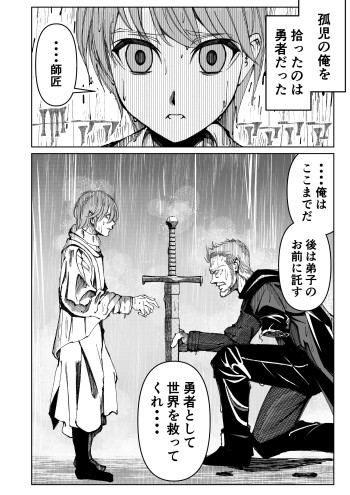
His Abandoned Duchess
by Maybel Bardot
“You’ve been gone for five years, your Grace!”
“Yet you’re still mine, little wife.”
Duke Richard never wanted to marry–least of all a woman not of his own choosing. And that’s exactly his sweet bride’s sin.
The Duchess of Blackford is so fed up with her estranged husband that she has taken a lover. Or at least that’s what the ton believes. If only they knew that Amelia has never felt a man’s touch…not even her husband’s.
When news of his wife’s infidelity reaches him, Richard knows he must teach her a lesson. Only, when he returns, he’s met with…defiance. And he will stop at nothing until he disciples this minx into submission.
*If you like a realistic yet steamy depiction of the Regency and Victorian era, then His Abandoned Duchess is the novel for you.
.
Read
His Abandoned Duchess on http://kissnovel.net
Martial Peak Reviews
Maybel Bardot's His Abandoned Duchess is a tantalizing foray into the complexities of love, power, and societal expectations set against the backdrop of the Regency era. The novel delves into the tumultuous relationship between Duke Richard and his estranged wife, Amelia, weaving a narrative that is both emotionally charged and steeped in the mores of its time.
At the heart of the story is the theme of ownership versus autonomy. Richard's assertion, "Yet you’re still mine, little wife," encapsulates the prevailing attitudes of the era, where marriage was often more about possession than partnership. Bardot skillfully uses this dynamic to explore the tension between societal norms and personal desires. Richard's initial reluctance to marry Amelia, a woman not of his choosing, sets the stage for a conflict that is as much internal as it is external. His return after a five-year absence is not just a physical journey but a metaphorical one, as he grapples with his own preconceived notions of marriage and duty.
Amelia, the Duchess of Blackford, is a character that embodies resilience and defiance. Her rumored infidelity, which is more a fabrication of the ton than reality, serves as a catalyst for her transformation. Bardot paints Amelia as a woman caught between the expectations of her title and her own unfulfilled desires. Her defiance against Richard's attempts to "discipline" her is not just a rebellion against her husband but a stand against the constraints imposed upon her by society. This defiance is a powerful statement on the struggle for female autonomy in a world that seeks to suppress it.
The character development in His Abandoned Duchess is both nuanced and compelling. Richard's evolution from a detached, duty-bound duke to a man who must confront his own vulnerabilities is portrayed with depth and sensitivity. Bardot does not shy away from depicting his flaws, making his journey towards understanding and acceptance all the more impactful. Similarly, Amelia's growth from a woman resigned to her fate to one who actively seeks to reclaim her life is both inspiring and relatable. Her journey is a testament to the strength and resilience of women who dare to defy societal norms.
One of the novel's strengths lies in its realistic yet steamy depiction of the Regency era. Bardot's attention to detail in her portrayal of the period is commendable, from the intricacies of social etiquette to the opulence of the settings. The steamy scenes are tastefully woven into the narrative, enhancing the emotional intensity without overshadowing the story's core themes. Bardot strikes a delicate balance between passion and plot, ensuring that the romantic elements serve to deepen the characters' development rather than detract from it.
In comparison to other works in the genre, such as Julia Quinn's Bridgerton series or Lisa Kleypas's Wallflowers series, Bardot's novel stands out for its focus on the psychological and emotional complexities of its characters. While Quinn and Kleypas often emphasize the romantic and social aspects of the era, Bardot delves deeper into the personal struggles and growth of her protagonists. This focus on character development adds a layer of depth to the narrative, making it a more introspective read.
The overall impact of His Abandoned Duchess is one of empowerment and introspection. Bardot challenges readers to question the traditional notions of marriage and love, urging them to consider the importance of personal agency and mutual respect in relationships. The novel's exploration of these themes is both timely and timeless, resonating with contemporary audiences while remaining true to its historical setting.
In conclusion, Maybel Bardot's His Abandoned Duchess is a captivating and thought-provoking read that offers a fresh perspective on the Regency romance genre. Its compelling characters, rich historical detail, and exploration of complex themes make it a standout addition to any romance lover's collection. Whether you're a fan of historical fiction or simply looking for a story that challenges and inspires, this novel is sure to leave a lasting impression.
























Reviews 0
Post a Reviews: